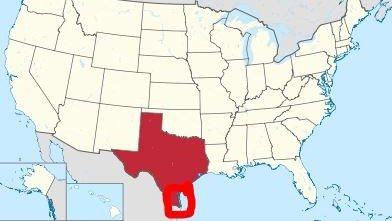POOR RICHARD’S REPORT
THE TRUMPETS ARE ROARING
Part One
The cloudless blue sky become a grey and black sky with ominous thunderheads suddenly appearing out of nowhere. Nations are powerless for the coming economic calamity even though intermittent rays of sunshine give false hope of a recovery.
There is a battle between socialism – the false promise of security through government sponsored entitlements – and democracy. A true democracy has freedom of religion and free movement between the social class infrastructure depending upon one’s ability.
Socialism breeds an elite upper class of the privilege few to govern the many.
Two countries stand out. The United States of America which was founded on the principal of freedom of religion. Many immigrants came for the “Pursuit of Happiness”.
The other country is Turkey whose history is littered with major religious movements with individual freedoms versus a state religion.
One of the greatest world leaders of the 20th Century was Mustafa Kemal Ataturk who instituted freedom of religion in modern Turkey in 1923. Just compare modern day Turkey with it’s Mideast Neighbors. The average citizen is held in high esteem by the rest of the world.
Their armed forces based upon the Korean Conflict in 1948-1953 are held in high honor. However , and unfortunately , the political system in Turkey is turning away from democracy and religious freedom. Sadly the USA is trotting down the same path.
The problem with democracies is when socialist leaders are elected they start instituting entitlement programs to secure reelection. Many of these programs were needed, but over subsequent years have been raided to fund other programs . In the united States The Social Security has been illegally raided. Instead of buying bonds and investing the income for compound interest- the government has been borrowing from it , and in a few years we will have a deficit. Correct actions are always hard to swallow by politicians; since the general population suffers.
A south American country , namely Argentina, was a very prosperous nation in 1914. The President decided it would be a good idea to share the wealth with the less fortunate, and they kept doing it . At That time the Argentina Peso was equal to the US Dollar. Today it would take a billion Argentina Peso’s to equal one US Dollar.
Today democracies must keep a constant vigil on socialist countries; especially where they have little respect for human life.
We need each other to explore the avenues of faith and prosperity. One nation cannot sustain itself anymore. We need each other, but we must play by the same rules and it is the people who must decide.
The trumpets are roaring……………
Part 2 Coming—–
Category: America
-

Poor Richard’ Report
-

Biosurveillance: Government to track your health as a matter of national security

By Darlene Storm
A very broad government biosurveillance plan that makes your health records a matter of “national security” showed up on my radar today. It opens the door leading to the government having near-real-time access to monitor your health. I apologize for only hearing about this, and bringing it to you at the last minute, since the deadline to submit comments is 5 PM Eastern time today, May 21. Of course the reason we might not have heard much about this “sneaky biosurveillance plan that will track American’s health records” is because the 50-page departmental draft (pdf) states, “Do not cite or quote.” Well that’s too damned bad, since this affects you, me, our kids, everyone in the United States!
It’s regarded as national security, meaning in the same way NSA surveillance was a secret until the Snowden leaks, you won’t even know how your health is being spied upon and shared with others. The 2015-2018 National Health Security Strategy (NHSS) (pdf) will keep track of and share information about not just sick people and sick animals, but even sick plants.
“The information collected by the government will be ‘all-encompassing’ and include ‘what our health status is, whether we exercise, how often we get a cold, or what kind of medications we’re taking,” according to the Citizens’ Council for Health Freedom (CCHF).
“This is not privacy.” Twila Brase, president and co-founder of CCHF, added (pdf), “Officials want a ‘near-real-time’ reporting requirement for electronic data systems. What is a ‘health threat’ or ‘incident’ that could jeopardize our ‘national health security?’ The Strategy says these could include terrorist activities, antibiotic resistance, climate change or subjects surrounding the economic environment. In other words, anything and everything could become a health threat by the government’s standards.”
Brase told CNCNews that the “NHSS proposal would allow the federal government to monitor an individual’s behavior before, during and after any government-defined health ‘incident.’ It’s very broad. It doesn’t seem to have any limits, except they say something about, you know, properly protecting the data. But from our perspective, if the government gets access to this kind of data, [and] is allowed to do research with the data…then our privacy has already been compromised. The government has already said that our data is their data for their purposes of national health security.”
There’s an old ACLU “joke” about ordering pizza in the future that’s meant to highlight the unpleasant “potential for centralized monitoring” and “the possibility of a dark future where our every move, our every transaction, our every communication is recorded, compiled, and stored away, ready for access by the authorities whenever they want.” In that future, a person wouldn’t be allowed to order a pizza or soda that would be “unhealthy” — or they could order “unhealthy” pizza but would be charged a health penalty fee and must sign an insurance liability waiver — since the pizza employee has access to the person’s health records. We are already tracked via our cell phones, websites, purchases, license plate readers and now biosurveillance plans to track Americans’ health records. It’s sad that this “joke” from 2006 is very nearly our reality in 2014.
The draft proposal (pdf) claims NHSS will create “health situational awareness” made up from “many types of health-related and non-health-related data.” A graphic illustration of inputs to health situational awareness includes: non-health sources like informatics, supply chain, energy, environment, event driven, media, social determinants, transportation services, active intelligence and veterinary. Examples of health-related sources include: morbidity and mortality, lab/diagnostics, social service utilization, disease prevalence, health service utilization, public health investigation and response asset data. All of the above are merely part of the big picture, or “examples” of what data feeds into the “biosurveillance” portion of public health and medical situational awareness.
Put another way:
Situational awareness will involve collecting, aggregating, and processing data from both traditional and nontraditional sources (such as social media) and from various governmental and nongovernmental stakeholders, while ensuring that data from all sources are of high quality. Health situational awareness will include the ability to interpret data to create relevant, tailored information that decision-makers can use. Decision-makers will have the capability to visualize and manipulate data from many sources to create an operational picture suited to the specific situation and the decisions before them.
Brase warns that the “government’s biosurveillance plan is much more intrusive than the data collection currently being done by the Centers for Disease Control and Prevention (CDC).” It “talks about the need for the ‘examination of data from electronic medical records’ and calls for ‘cooperation among federal and non-federal stakeholders, including the scientific community and public and private healthcare providers … to achieve an efficient and reliable surveillance system.”
She added, “It’s very clear to us that really the government is moving toward real-time access, toward close collaboration of government and doctors for ready access to the electronic medical record and then to conduct research and analysis.”
“The scary truth is that this government surveillance program brings together several federal agencies—all who will be able to view, share, interpret and research the data collected through the system,” CCHF warns (pdf). “Cut through the jargon, and simply put, the government’s plan means that your medical records would be shared with government officials.”
CCHF urges you to speak out against the government’s biosurveillance plan to warehouse our health information. Or you can otherwise submit your public comments here.
—
Darlene Storm (not her real name) is a freelance writer with a background in information technology and information security. It seems wise to keep an eye on new hacks and holes, to know what is possible and how vulnerable you might be. Most security news is about insecurity, hacking, cybersecurity and even privacy threats, bordering on scary. But when security is done right, it’s a beautiful thing…sexy even. Security is sexy.
This is a weblog of Darlene Storm. The opinions expressed are those of Darlene Storm and may not represent those of Computerworld.
blogs.computerworld.com, May 21, 2014
-

CYPRUS MAIL: We all stand to gain from Biden’s visit
US Vice President Joe Biden
WE WOULD have thought that the announcement of the visit to Cyprus by US Vice President Joe Biden would have been welcomed by the Greek Cypriot political parties, which had always demanded a more active involvement of the international community, particularly the US, in the Cyprus peace efforts. For years they had been seeking US government help, arguing that only Washington could apply real pressure on Turkey, but now that it is being offered, the parties do not want it.
The parties that see the visit as a dangerous development are the customary peddlers of total negativity and guardians of the status quo. For the fledgling Alliance of Citizens the visit made it clear that the Anastasiades government “has accepted a solution of the Cyprus problem that serves the geo-political planning of the US in the eastern Mediterranean.” EDEK did not believe the US were up to any good while DIKO leader Nicholas Papadopoulos adhered to his simplistic views, posing the question: “Who stands to gain from Biden’s visit, us or the pseudo-state that would be upgraded?”
For all these parties the Cyprus problem must be preserved so they can keep scoring cheap political points with their rhetoric. Any attempt at making things move, such as the US government taking an active interest in the problem, is seen as a threat to the status quo. These parties would prefer nothing were done to bridge the differences of the two sides, which is why they have reacted so badly to the news of the visit.
Vice President Biden’s visit, scheduled for next week, will not only underline US support for the peace process but – if reports from Washington are correct – also pave the way for an agreement on Famagusta. Biden will reportedly announce the financing of a master plan for the Famagusta area, including fenced-off Varosha to which access would be given to the experts drafting the master plan. There would also be demining of three minefields. Both sides have reportedly agreed to the US proposal although there are still some procedural details to sort out.
President Anastasiades has been calling for the opening of the fenced area of Famagusta for a year now, and the US government has undertaken to make this confidence-building measure happen. Such a move, Anastasiades has always maintained, would give impetus to the ongoing talks. So, in answer to Papadopoulos, who rather naively sees every dispute as zero-sum game, we all stand to gain from Biden’s visit. And is this really such a bad thing?
-

Borderlands: The View from Azerbaijan
By George Friedman
Azerbaijan, constantly changing world affairs and here is what George Friedman who is publicly know as shadow CIA has to say about Azerbaijan and history.
I arrive in Azerbaijan as the country celebrates Victory Day, the day successor states of the former Soviet Union celebrate the defeat of Germany in World War II. No one knows how many Soviet citizens died in that war — perhaps 22 million. The number is staggering and represents both the incompetence and magnificence of Russia, which led the Soviets in war. Any understanding of Russia that speaks of one without the other is flawed.
As I write, fireworks are going off over the Caspian Sea. The pyrotechnics are long and elaborate, sounding like an artillery barrage. They are a reminder that Baku was perhaps the most important place in the Nazi-Soviet war. It produced almost all of the Soviet Union’s petroleum. The Germans were desperate for it and wanted to deny it to Moscow. Germany’s strategy after 1942, including the infamous battle of Stalingrad, turned on Baku’s oil. In the end, the Germans threw an army against the high Caucasus guarding Baku. In response, an army raised in the Caucasus fought and defeated them. The Soviets won the war. They wouldn’t have if the Germans had reached Baku. It is symbolic, at least to me, that these celebrations blend into the anniversary of the birth of Heydar Aliyev, the late president of Azerbaijan who endured the war and later forged the post-Soviet identity of his country. He would have been 91 on May 10.
Baku is strategic again today, partly because of oil. I’ve started the journey here partly by convenience and partly because Azerbaijan is key to any counter-Russian strategy that might emerge. My purpose on this trip is to get a sense of the degree to which individual European states feel threatened by Russia, and if they do, the level of effort and risk they are prepared to endure. For Europe does not exist as anything more than a geographic expression; it is the fears and efforts of the individual nation-states constituting it that will determine the course of this affair. Each nation is different, and each makes its own calculus of interest. My interest is to understand their thinking, not only about Russia but also about the European Union, the United States and ultimately themselves. Each is unique; it isn’t possible to make a general statement about them.
Some question whether the Caucasus region and neighboring Turkey are geographically part of Europe. There are many academic ways to approach this question. My approach, however, is less sophisticated. Modern European history cannot be understood without understanding the Ottoman Empire and the fact that it conquered much of the southeastern part of the European peninsula. Russia conquered the three Caucasian states — Armenia, Georgia and Azerbaijan — and many of their institutions are Russian, hence European. If an organic European expression does exist, it can be argued to be Eurovision, the pan-continental music competition. The Azerbaijanis won it in 2011, which should settle any debate on their “Europeanness.”
But more important, a strategy to block Russia is hard to imagine without including its southern flank. There is much talk of sanctions on Russia. But sanctions can be countered and always ignore a key truth: Russia has always been economically dysfunctional. It has created great empires and defeated Napoleon and Hitler in spite of that. Undermining Russia’s economy may be possible, but that does not always undermine Russia’s military power. That Soviet military power outlived the economically driven collapse of the Soviet Union confirms this point. And the issue at the moment is military.
The solution found for dealing with the Soviet Union during the Cold War was containment. The architect of this strategy was diplomat George Kennan, whose realist approach to geopolitics may have lost some adherents but not its relevance. A cordon sanitaire was constructed around the Soviet Union through a system of alliances. In the end, the Soviets were unable to expand and choked on their own inefficiency. There is a strange view abroad that the 21st century is dramatically different from all prior centuries and such thinking is obsolete. I have no idea why this should be so. The 21st century is simply another century, and there has been no transcendence of history. Containment was a core strategy and it seems likely that it will be adopted again — if countries like Azerbaijan are prepared to participate.
To understand Azerbaijan you must begin with two issues: oil and a unique approach to Islam. At the beginning of the 20th century, over half the world’s oil production originated near Baku, the capital of Azerbaijan. Hence Hitler’s strategy after 1942. Today, Azerbaijani energy production is massive, but it cannot substitute for Russia’s production. Russian energy production, meanwhile, defines part of the strategic equation. Many European countries depend substantially on Russian energy, particularly natural gas. They have few alternatives. There is talk of U.S. energy being shipped to Europe, but building the infrastructure for that (even if there are supplies) will take many years before it can reduce Europe’s dependence on Russia.
Withholding energy would be part of any Russian counter to Western pressure, even if Russia were to suffer itself. Any strategy against Russia must address the energy issue, begin with Azerbaijan, and be about more than production. Azerbaijan is not a major producer of gas compared to oil. On the other side of the Caspian Sea, however, Turkmenistan is. Its resources, coupled with Azerbaijan’s, would provide a significant alternative to Russian energy. Turkmenistan has an interest in not selling through Russia and would be interested in a Trans-Caspian pipeline. That pipeline would have to pass through Azerbaijan, connecting onward to infrastructure in Turkey. Assuming Moscow had no effective counters, this would begin to provide a serious alternative to Russian energy and decrease Moscow’s leverage. But this would all depend on Baku’s willingness and ability to resist pressure from every direction.
Azerbaijan lies between Russia and Iran. Russia is the traditional occupier of Azerbaijan and its return is what Baku fears the most. Iran is partly an Azeri country. Nearly a quarter of its citizens, including Ayatollah Ali Khamenei, are Azeri. But while both Azerbaijan and Iran are predominantly Shiite, Azerbaijan is a militantly secular state. Partly due to the Soviet experience and partly because of the unique evolution of Azeri identity since the 19th century, Azerbaijan separates the private practice of Islam from public life. I recall once attending a Jewish Passover feast in Baku that was presided over by an Orthodox rabbi, with security provided by the state. To be fair, Iran has a Jewish minority that has its own lawmaker in parliament. But any tolerance in Iran flows from theocratic dogma, whereas in Azerbaijan it is rooted in a constitution that is more explicitly secular than any in the European Union, save that of France.
This is just one obvious wedge between Azerbaijan and Iran, and Tehran has made efforts to influence the Azeri population. For the moment, relations are somewhat better but there is an insoluble tension that derives from geopolitical reality and the fact that any attack on Iran could come from Azerbaijan. Furthering this wedge are the close relations between Azerbaijan and Israel. The United States currently blocks most weapons sales to Azerbaijan. Israel — with U.S. approval — sells the needed weapons. This gives us a sense of the complexity of the relationship, recalling that complexity undermines alliances.
The complexity of alliances also defines Russia’s reality. It occupies the high Caucasus overlooking the plains of Azerbaijan. Armenia is a Russian ally, bound by an agreement that permits Russian bases through 2044. Yerevan also plans to join the Moscow-led Customs Union, and Russian firms own a large swath of the Armenian economy. Armenia feels isolated. It remains hostile to Turkey for Ankara’s unwillingness to acknowledge events of a century ago as genocide. Armenia also fought a war with Azerbaijan in the 1990s, shortly after independence, for a region called Nagorno-Karabakh that had been part of Azerbaijan — a region that it lost in the war and wants back. Armenia, caught between Turkey and an increasingly powerful Azerbaijan, regards Russia as a guarantor of its national security.
For Azerbaijan, Nagorno-Karabakh remains a critical issue. Azerbaijan holds that U.N. resolutions have made it clear that Armenia’s attack constituted a violation of international law, and a diplomatic process set up in Minsk to resolve the crisis has proven ineffective. Azerbaijan operates on two tracks on this issue. It pursues national development, as can be seen in Baku, a city that reflects the oil wealth of the country. It will not endanger that development, nor will it forget about Nagorno-Karabakh. At some point, any nation aligning itself with Azerbaijan will need to take a stand on this frozen conflict, and that is a high price for most.
Which leads me to an interesting symmetry of incomprehension between the United States and Azerbaijan. The United States does not want to sell weapons directly to Azerbaijan because of what it regards as violations of human rights by the Azerbaijani government. The Americans find it incomprehensible that Baku, facing Russia and Iran and needing the United States, cannot satisfy American sensibilities by avoiding repression — a change that would not threaten the regime. Azerbaijan’s answer is that it is precisely the threats it faces from Iran and Russia that require Baku to maintain a security state. Both countries send operatives into Azerbaijan to destabilize it. What the Americans consider dissidents, Azerbaijan sees as agents of foreign powers. Washington disputes this and continually offends Baku with its pronouncements. The Azerbaijanis, meanwhile, continually offend the Americans.
This is similar to the Nagorno-Karabakh issue. Most Americans have never heard of it and don’t care who owns it. For the Azerbaijanis, this is an issue of fundamental historical importance. They cannot understand how, after assisting the United States in Afghanistan, risking close ties with Israel, maintaining a secular Islamic state and more, the United States not only cannot help Baku with Nagorno-Karabakh but also insists on criticizing Azerbaijan.
The question on human rights revolves around the interpretation of who is being arrested and for what reason. For a long time this was an issue that didn’t need to be settled. But after the Ukrainian crisis, U.S.-Azerbaijani relations became critical. It is not just energy; rather, in the event of the creation of a containment alliance, Azerbaijan is the southeastern anchor of the line on the Caspian Sea. In addition, since Georgia is absolutely essential as a route for pipelines, given Armenia’s alliance with Russia, Azerbaijan’s support for Georgian independence is essential. Azerbaijan is the cornerstone for any U.S.-sponsored Caucasus strategy, should it develop.
I do not want to get into the question of either Nagorno-Karabakh or human rights in Azerbaijan. It is, for me, a fruitless issue arising from the deep historical and cultural imperatives of each. But I must take exception to one principle that the U.S. State Department has: an unwillingness to do comparative analysis. In other words, the State Department condemns all violations equally, whether by nations hostile to the United States or friendly to it, whether by countries with wholesale violations or those with more limited violations. When the State Department does pull punches, there is a whiff of bias, as with Georgia and Armenia, which — while occasionally scolded — absorb less criticism than Azerbaijan, despite each country’s own imperfect record.
Even assuming the validity of State Department criticism, no one argues that Azerbaijani repression rises anywhere near the horrors of Joseph Stalin. I use Stalin as an example because Franklin Roosevelt allied the United States with Stalin to defeat Hitler and didn’t find it necessary to regularly condemn Stalin while the Soviet Union was carrying the burden of fighting the war, thereby protecting American interests. That same geopolitical realism animated Kennan and ultimately created the alliance architecture that served the United States throughout the Cold War. Is it necessary to offend someone who will not change his behavior and whom you need for your strategy? The State Department of an earlier era would say no.
It was interesting to attend a celebration of U.S.-Azerbaijani relations in Washington the week before I came to Baku. In the past, these events were subdued. This one was different, because many members of Congress attended. Two guests were particularly significant. One was Charles Schumer of New York, who declared the United States and Azerbaijan to be great democracies. The second was Nancy Pelosi, long a loyalist to Armenian interests. She didn’t say much but chose to show up. It is clear that the Ukrainian crisis triggered this turnout. It is clear that Azerbaijan’s importance is actually obvious to some in Congress, and it is also clear that it signals tension over the policy of criticizing human rights records without comparing them to those of other countries and of ignoring the criticized country’s importance to American strategy.
This is not just about Azerbaijan. The United States will need to work with Turkey, Bulgaria, Romania and Hungary — all of whom have been found wanting by the State Department in some ways. This criticism does not — and will not — produce change. Endless repetition of the same is the height of ineffectiveness. It will instead make any strategy the United States wants to construct in Europe ineffective. In the end, I would argue that a comparison between Russia and these other countries matters. Perfect friends are hard to find. Refusing to sell weapons to someone you need is not a good way to create an alliance.
In the past, it seemed that such an alliance was merely Cold War nostalgia by people who did not realize and appreciate that we had reached an age too wise to think of war and geopolitics. But the events in Ukraine raise the possibility that those unreconstructed in their cynicism toward the human condition may well have been right. Alliances may in fact be needed. In that case, Roosevelt’s attitude toward Stalin is instructive.
Edited By Tolga CAKIR -

A ‘New Israel’… in eastern Texas?
Long-shot congressional candidate Allan Levene has a uniquely improbable two-state solution
JTA — With the Israeli-Palestinian peace negotiations floundering, it may, perhaps, be time to consider an entirely different kind of two-state solution. One that involves the State of Texas.



